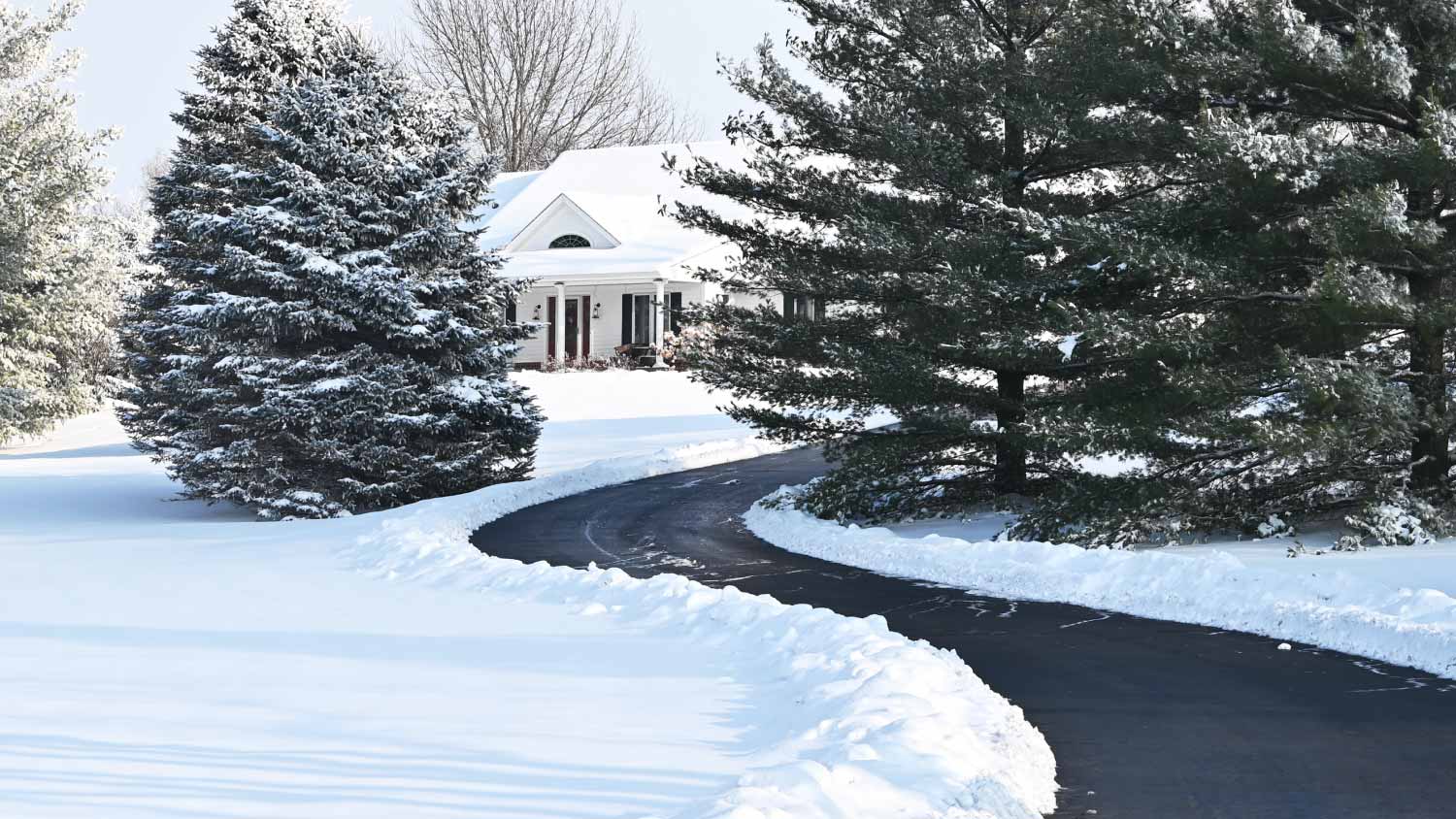Concrete vs. Asphalt in Cold Climates
We'll help you make a concrete decision on concrete vs. asphalt


Both concrete and asphalt can be used in colder climates.
Concrete's rigid profile can make it more susceptible to cracking than asphalt in climates that experience freeze-thaw cycles.
While concrete requires little maintenance, asphalt needs to be resealed every three to four years.
Average concrete repair costs totaling $829 to $2,788 can be double the $1,500 it costs for a typical asphalt repair.
If you live in a cold climate, you may be wondering about the best type of driveway for longevity and easy maintenance. The freeze-thaw cycles that take place in colder climates can do a number on driveways, walkways, and other surfaces. This guide to concrete vs asphalt in cold climates will help you make a choice!
Pros and Cons of Concrete in Cold Climates

Concrete is a simple mixture of paste and aggregates that is one of the most commonly used infrastructural materials in the world. On average, a concrete driveway costs $4 to $15 per square foot. Here's what you can expect for performance in cold weather.
Pros
Low Maintenance: Concrete doesn't require the sealant coating needed for asphalt to survive cold weather.
Lifespan: Concrete can easily last up to 30 years even in the chilliest conditions.
Recyclable: Concrete is a better choice for an eco-friendly driveway.
Cons
Issues With Heaving: While fixable, a problem called heaving that results when ice and water get into pockets under concrete is a risk.
Staining: Salt and melting compounds that are commonly used in cold-weather climates during the winter can easily stain concrete.
Cracks: Wild temperature swings are known to cause cracks to form in concrete.
Repair Costs: The average cost to repair or fix a concrete driveway totals $829 to $2,788.
Pros and Cons of Asphalt in Cold Climates

Asphalt is a mixture of aggregates and fillers used for roads, walkways, driveways, and countless other surfaces. It is considered much softer than concrete as a walking surface. At $7 to $13 per square foot, it is comparable in cost to asphalt. Here's a look at the pros and cons based on how it performs in cold weather.
Pros
Bendable: Asphalt doesn't have the rigidity of concrete. As a result, it generally performs much better in areas with frost-thaw cycles that cause materials to expand and contract.
Helps to Melt Ice: The darker color of asphalt can actually attract the sun, helping snow and ice melt faster.
Easily Repairable: Small cracks in asphalt are generally less expensive to repair than damaged concrete. On average, asphalt repair costs $1,500.
Cons
Ongoing Maintenance: Unlike concrete, asphalt needs to be sealed every three to four years.
Patching Is Difficult: Due to the temperature needed for asphalt curing time, damaged concrete can only be patched when temperatures reach above 50 degrees Fahrenheit. If a driveway is damaged by a plow, major repairs may need to be left unfinished until spring.
Choosing Between Concrete vs Asphalt in Cold Climates
Asphalt's bendable quality makes it a better choice in areas where the freeze-thaw cycle poses threats for cracking. It can also be a better option for walkways because of the way its dark color helps ice and snow to melt quickly. Asphalt that is professionally installed by a local asphalt company should last for up to 30 years. However, homeowners who choose this option should be prepared to reseal asphalt every few years.




- Asphalt vs. Concrete Driveways: What’s the Difference?
- 6 Types Of Asphalt for Driveways
- The Ultimate Guide to Asphalt Maintenance
- Recycled Asphalt Driveways: Everything You Need to Know
- How Long Until You Can Drive on New Asphalt?
- How Long Does it Take for Asphalt to Dry and Cure?
- Best Driveway Material for Cold Weather
- Unlocking the Advantages of Concrete: Why It’s the Ultimate Building Material
- 5 Best Driveway Material Options and How to Choose the Best One
- 6 Tips to Extend the Lifespan of Your Asphalt Pavement











